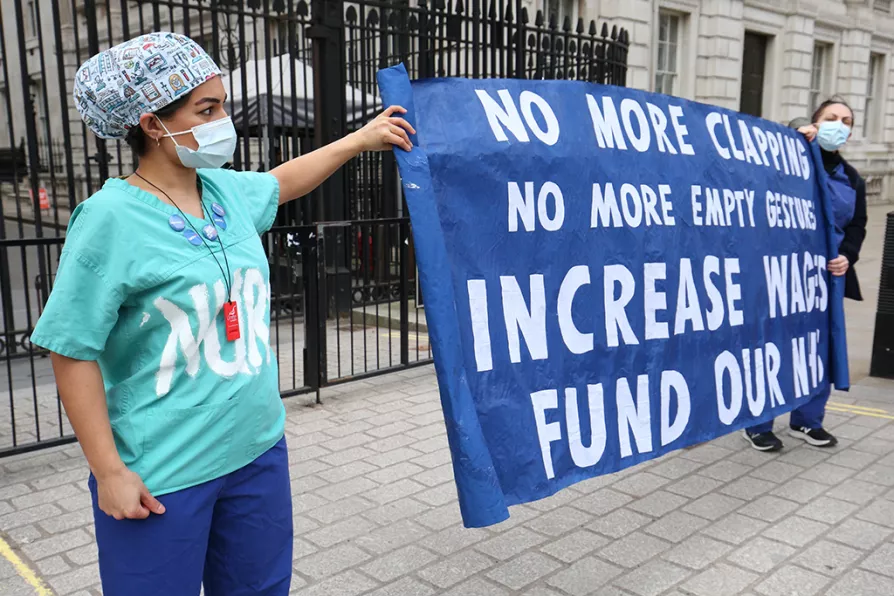The Carpathia isn’t coming to rescue this government still swimming in the mire, writes LINDA PENTZ GUNTER

 Taking it to the top: nurses demand a proper pay rise at Downing Street
Taking it to the top: nurses demand a proper pay rise at Downing Street
ON INTERNATIONAL Nurses Day it is important to recognise the central role nurses play in running front-line NHS services and to acknowledge that their struggle for decent pay is central to the battle to stop the cuts and privatisation steamroller that threatens to destroy free healthcare for good.
Nurses of all grades contributed to the pandemic response and in London there was such a shortage of trained and experienced nurses that NHS trusts were forced to increase the bank pay rates in order to ensure that wards and units could deliver care. Nursing care was in such short supply that some doctors stepped in to fill the gap left by nursing shortages.
Student nurses who have had the terms and conditions of their training contracts eroded over several decades without so much as a whimper of opposition by the trade union movement, found themselves thrown in at the deep end delivering life-saving care for free in ICUs and other coronavirus areas. The student nurses were sold the familiar line that gaining “pandemic experience” is a more important consideration than pay. The student nurses were also told that their families were not eligible for a death in service pay scheme even though they were risking their lives. Many became unwell and some, like Ade Raymond, died.

With 121,000 vacancies and 44.8% of staff feeling unwell from work stress, the NHS 10-year plan will not succeed unless the government takes immediate action to retain existing staff, writes ANNETTE MANSELL-GREEN

MATT WRACK issues a clarion call for a rejuvenation of public services for the sake of our communities and our young people

When privatisation is already so deeply embedded in the NHS, we can’t just blindly argue for ‘more funding’ to solve its problems, explain ESTHER GILES, NICO CSERGO, BRIAN GIBBONS and RATHI GUHADASAN











